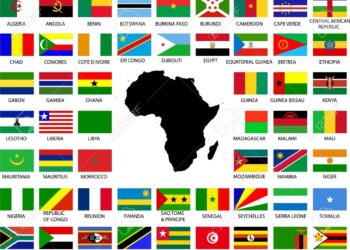Nigeria’s broad money supply (M3) rose to N110.98 trillion in January 2025, marking a 17.3% year-on-year (YoY) increase from N94.61 trillion recorded in January 2024.
This expansion highlights the growing liquidity in the economy, fueled by both net foreign assets and net domestic assets.
However, the Central Bank of Nigeria (CBN) did not provide figures for December 2024, leaving a crucial gap in understanding monetary movements during the peak holiday spending season.
The surge in money supply comes at a critical time as the Monetary Policy Committee (MPC) meets on Wednesday, February 19, and Thursday, February 20, to decide on interest rates amid persistent inflationary concerns.
What the data says
According to the latest credit and monetary statistics released by the CBN, net foreign assets stood at N35.39 trillion in January 2025, up from N29.73 trillion in January 2024, reflecting a 19% YoY increase.
- Similarly, net domestic assets grew by 16.5% YoY to N75.59 trillion, compared to N64.87 trillion a year ago.
- The increase in M3 money supply, which includes both net foreign assets (NFA) and net domestic assets (NDA), provides a holistic picture of Nigeria’s monetary dynamics. Over the past year, the country’s money supply has expanded steadily, with notable jumps in the second half of 2024. By November 2024, M3 stood at N108.97 trillion, rising further to N109.41 trillion in September 2024 before hitting its latest peak in January 2025.
- The net foreign asset’ increase is likely due to improved external reserves, capital inflows, and a stronger trade balance, while that of the net domestic assets is likely due to increased lending, government borrowing, and broader credit expansion.
What this means as the MPC meets to set interest rates
With a surge in money supply and rising liquidity levels, the CBN faces a major challenge in controlling inflation and stabilizing the naira.
- Historically, an increase in money supply fuels inflationary pressures, as excess liquidity can drive up consumer demand and cause price hikes. Nigeria’s headline inflation remains elevated, with concerns that higher money supply could further accelerate price increases.
- The Monetary Policy Committee (MPC), which meets this week, will need to weigh the risks of monetary expansion against the need for economic stability.
- Raising the Monetary Policy Rate (MPR) could help curb inflation by tightening liquidity, but it may also slow credit growth and dampen economic activity.
- Conversely, keeping rates unchanged might sustain growth momentum but risk exacerbating inflationary pressures and further weakening the naira.
- The increase in net foreign assets suggests that Nigeria’s external reserves have strengthened, potentially offering some relief in managing exchange rate volatility. However, with net domestic assets also rising, policymakers may consider restricting liquidity flow to prevent inflationary risks.
What you should know
At the last MPC meeting, the CBN raised the interest rate, increasing it by 25 basis points from 27.25% to 27.50%, in a bid to address the rising inflation in the country.
- The Monetary Policy Committee unanimously agreed to the hike, raising the interest rate by 25 basis points to 27.50%, up from its previous level in September.
- The central bank monetary policy committee raised interest rates 6 times in a row and every single meeting held in 2024.
- However, Nigeria’s headline inflation rate dropped to 24.48% year-on-year in January 2025, following the rebasing of the Consumer Price Index (CPI), according to data released by the National Bureau of Statistics (NBS).
- The report highlights a decline in the general price level of goods and services compared to 34.80% in December 2024, which was calculated using the previous methodology.
- With the lowered inflation rate, the Centre for the Promotion of Private Enterprise (CPPE) called upon the MPC to halt further increases in interest rates.
Dr. Muda Yusuf, Chief Executive Officer of CPPE, emphasized that pausing interest rate hikes would provide an opportunity for fiscal policy measures to address inflation.
The CBN’s policy direction will determine whether a tightening stance is adopted to rein in excess liquidity or if a cautious approach is taken to balance economic growth and price stability. Whatever the decision, the MPC’s resolution this week will set the tone for Nigeria’s monetary policy in 2025, shaping inflation trends, credit availability, and overall economic confidence.





















